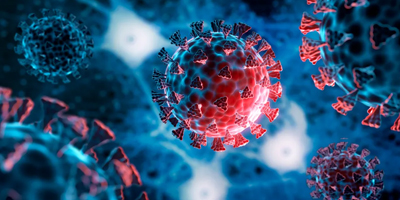
With the legalization of medical cannabis—more commonly known as marijuana—in more than three-quarters of states and Washington, DC, articles reporting the drug’s benefits have become easy to find online. But Wei Du, MD, codirector of Drexel’s Cannabis Research Center, cautions against accepting this news at face value.

With spring on the horizon, community health fairs will become a common sight in many Philadelphia neighborhoods. At these free public events, local organizations and health care providers set up booths to offer educational information, health screenings, and preventative health care services.

“We are taking the wrong approach to sun protection in the United States, particularly relative to skin of color.”

The average adult needs between seven and nine hours of sleep each night, but it can be hard for many people to fall asleep or stay asleep. If counting sheep isn’t working, try the tips below instead.

Roughly one out of three women ages 14-49 in the United States develop a vaginal bacterial imbalance known as bacterial vaginosis (BV) during their lifetime.

Physicians, dietitians and nutritionists can all help you better manage your weight. This blog can help if you want to discuss weight management at a medical appointment.

Temperature extremes, becoming increasingly frequent due to growing global climate change, are associated with higher rates of missed primary care appointments, according to a recently published study from Drexel University researchers in the American Journal of Preventive Medicine.

Roughly a quarter of U.S. adults who’ve tested positive for COVID-19 report having experienced, or are currently experiencing, three or more months of COVID symptoms, such as dizziness, headache, brain fog, and/or other symptoms, according to October 2023 data from the Center for Disease Control and Prevention’s (CDC) Household Pulse Survey. The condition is known as Post-acute sequelae of SARS-CoV-2 or “long COVID.” And among hospitalized COVID-19 patients, that number increases to roughly half. (Drexel News Blog)

Keeping up with health screenings can help you catch issues early and even avoid certain kinds of illness. A health screening refers to a test that looks for a condition before there are any signs or symptoms of that condition. Here are general guidelines for health screenings categorized by age group.

Robert Thayer Sataloff, MD, DMA, professor and chair of Otolaryngology – Head & Neck Surgery at Drexel University’s College of Medicine, shared insight on how cold air impacts our vocal folds, debunks some misconceptions about voice and what we can do to sound our best during the cold and throughout the year.

Although it may be convenient to go to a walk-in clinic or urgent care for your medical needs, having a primary care provider is important. Read on to learn why you should have a primary care provider, who you will see for wellness visits and illnesses throughout the year.

Whether you’re considering Dry January or cutting back unhealthy habits in the New Year, assessing whether your substance use is a problem is an important first step.

Black and Hispanic participants in a 2018 study said they believed their skin cancer risk was low because of their darker skin tones and because skin cancer did not run in their families.

Doctors say that avoiding COVID-19 and the flu is as important this year as in past years. Stay up to date on booster vaccines to protect yourself and others.

April is National Stress Awareness Month, a time to talk about the effects of stress. Everyone feels stressed sometimes, but extreme or long-term stress can be bad for your well-being.

As you say goodbye to 2023, you may be thinking of New Year’s resolutions. Drexel Medicine has advice for sticking to common New Year’s resolutions, like increasing your exercise or sleep.